Melvins – Thunderball (Ipepac)
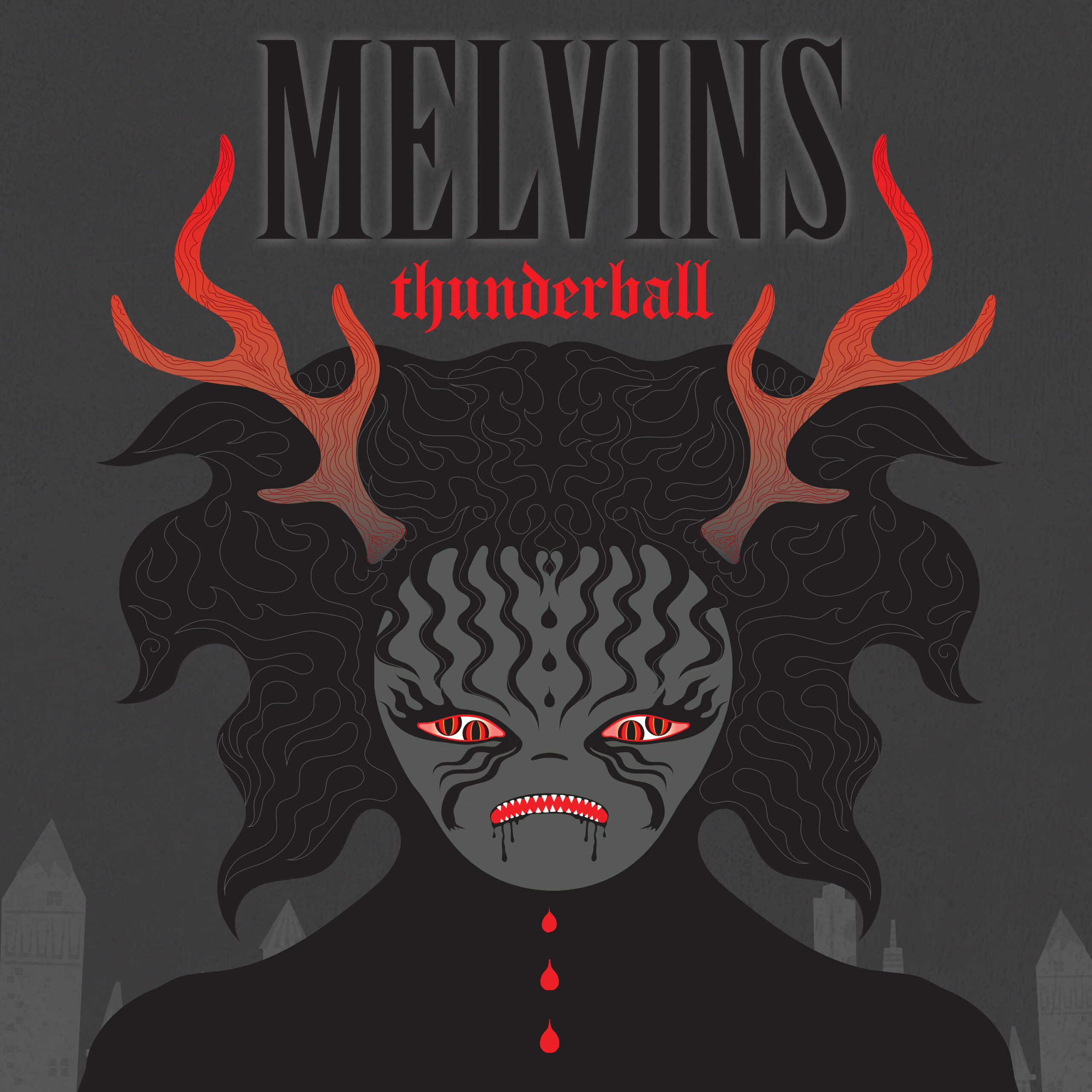
Released under the name ‘Melvins 1983’, the band’s 28th studio album sees the return of founding members Buzz Osborne (vocals, guitar) and Mike Dillard (drums) collaborating on five tracks, alongside Atlanta electronic musicians Bristolian Ni Maîtres and Void Manes.
The release opens with the chocking guitar riffs of dark sludge metal track, ‘King of Rome’; a titanic, bellowing song that lives up to its name. The fire cools off for an electronic, cosmic white noise interval, ‘Vomit of Clarity’; an unusual slant on the noise rock band written by Ni Maîtres and Manes. The electronic distortion continues into the next track, ‘Short Hair with a Wig’, which alternates between stripped down, swaying drumming and vocals filled in with drilling electronic noise, and intervals of bending guitar chorals, the electronics blossoming into the open at the end.
The album reaches its peak with ‘Victory of the Pyramids’ which consists of what seems like severals songs on one track, beginning with racing guitar riffs and switching to a fast meted out grunge chant, then Osborne’s spidery guitar and a slow, chugging piece that ends in an electronic fizz. Final track ‘Venus Blood’ sees a steady drip and a winding guitar solo. Short and unsweet.
‘Thunderball’ is out now on vinyl, CD and digitally.
© Ayisha Khan.
Gary Numan – Berserker (BMG)
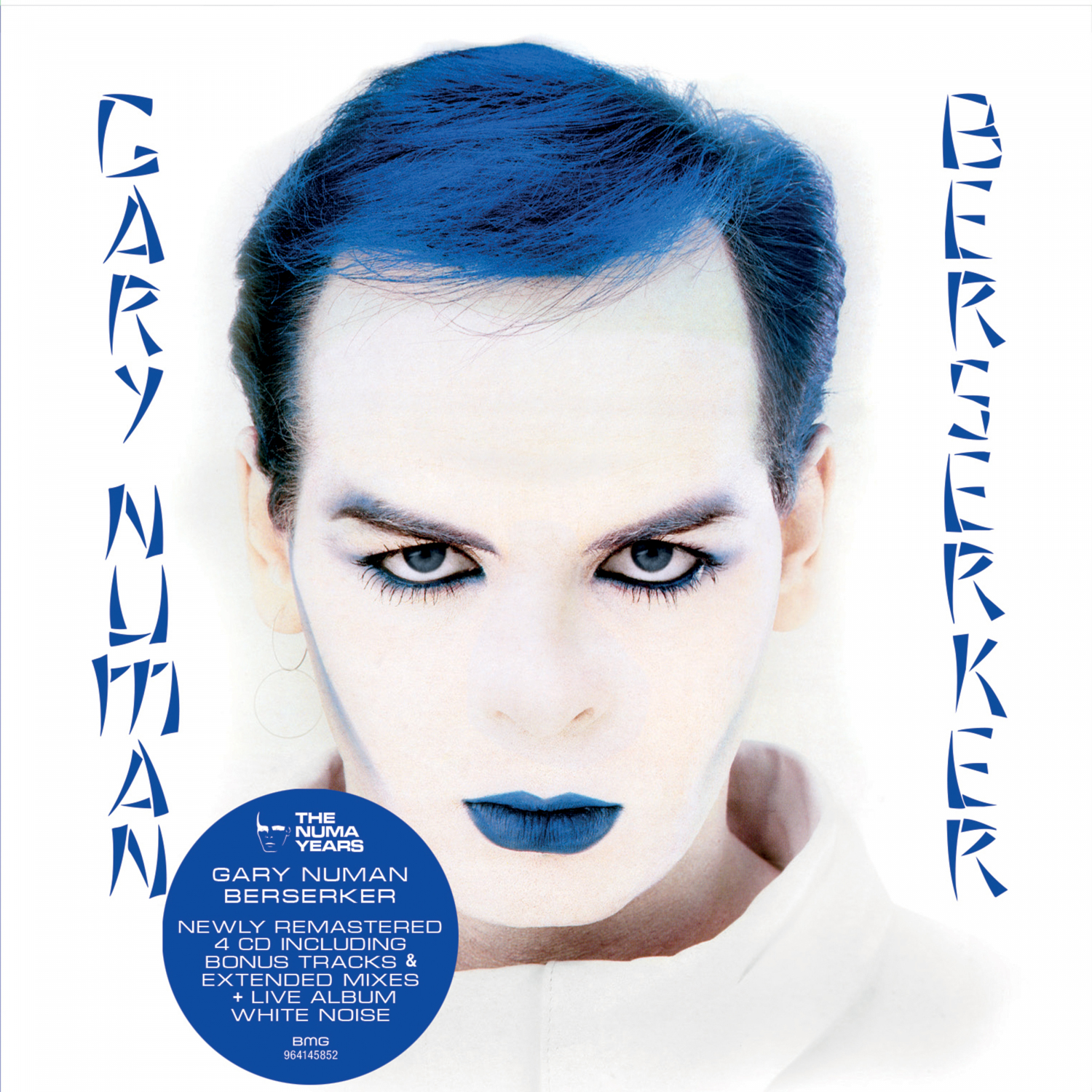
The reissue of Numan’s first album release on his Numa label showcases his full artistic freedom for the first time in his solo career; its electro-funk dance tracks such as ‘Beserker’, ‘This is New Love’ and ‘The Secret’ now come with added length and remastering that breathes new life into the original 1984 album. The extended reworking sees ‘Beserker’ get a longer mid-section and ‘This is New Love’ has an enhanced synth sequence and a cool saxophone solo to end the song, with ‘The Secret’ also benefitting from an extended intro.
There are more extended tracks in the way of ‘Cold Warning Dance’, which has a new violin section, and ‘The Hunter’ with an extra synth part and further electronic effects. All in all, the album is brought up to date; rather than presenting a simple reissue, Numan is constantly reinventing his music and updating it for the current time. However, the haunting magic of ‘A Child with The Ghost’, which he wrote in tribute to his Tubeway Army co-founder Paul Gardiner, who died of a drug overdose, is understandably untouched.
The rest of the release includes ‘The White Noise’ album which was recorded live in 1984 at the penultimate show of Numan’s Berserker tour and originally released in 1985. The inclusion of it on this studio release rounds off the full experience of these songs and the commemoration of a new phase in Numan’s career as one of the most innovative artists on the scene.
‘Berserker’ is out now on double gatefold vinyl, CD and digitally.
© Ayisha Khan.
Billy Idol – Dream Into It (Dark Horse)
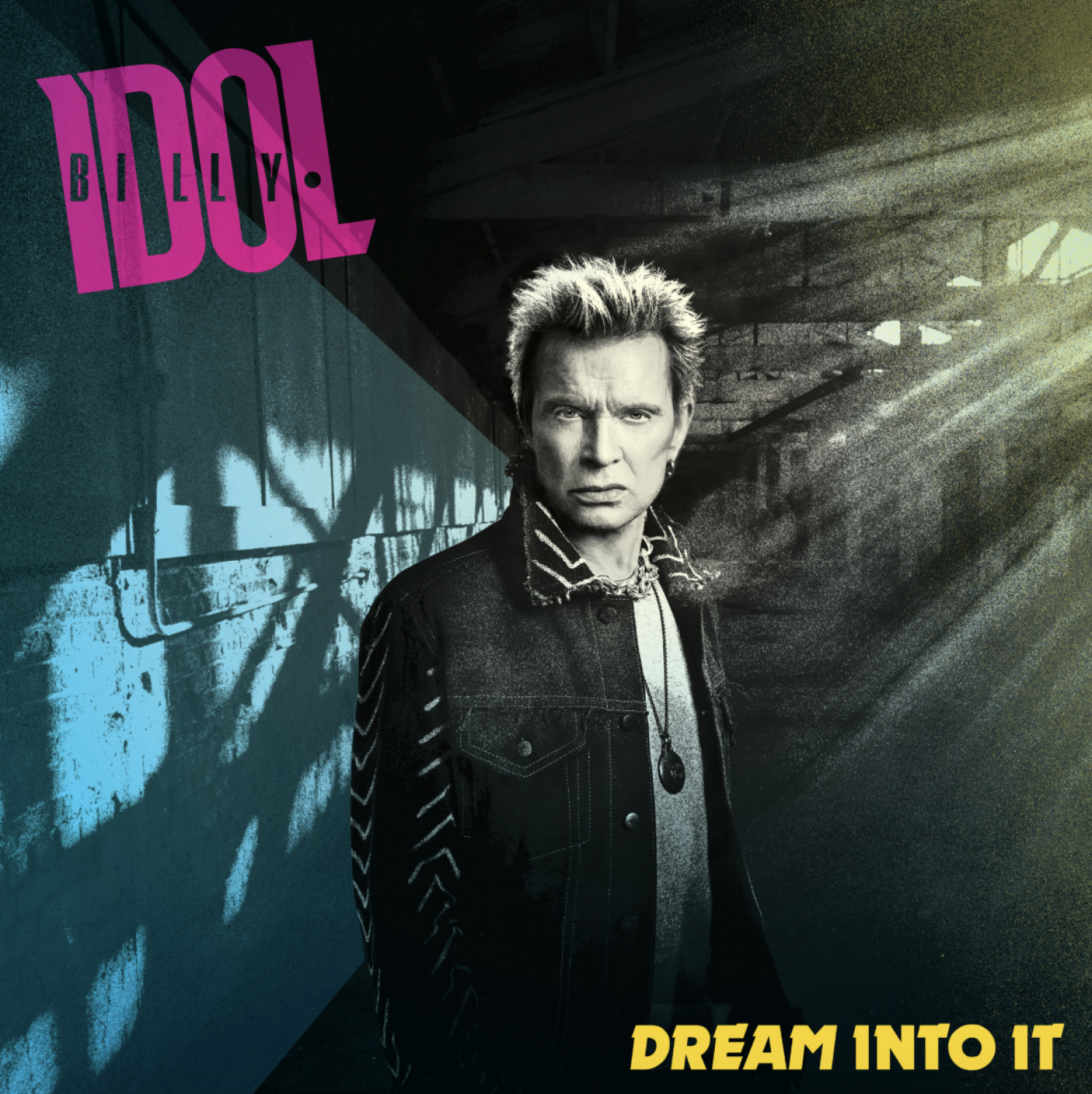
The solo artist releases his first studio album in more than a decade. Opening on ‘Dream into It’, a chimerical song that looks back on Idol’s pop career against the reality of consequences, even after his records are still turning, it contains some nice chiming guitar and twinkling keyboards. The single ’77’ featuring Avril Lavigne is more peculiar: a pop-punk track where Idol’s own voice is overshadowed, it also has outdated lyrical references to the King’s road and Teddy Boys from his punk youth, which bears no relation to today other than a short lyrical mid-section, although the song is punchy including in a literal sense.
The singer’s other personas develop more artistically through the tracklist, such as with the post-punk guitar tones of country track ‘John Wayne’ (featuring Alison Mosshart), which sees a more sophisticated tone to Idol’s voice come through, this time conquering Mosshart’s vocals, albeit slightly dated and also with reference to a not-so-PC figure. Joan Jett dominates ‘Wildside’, a song which echos her own work, so it seems bizarre that Idol would put this on the album other than for using her as an association. Creating a production with such strong female vocalists gives the impression of a collaboration rather than solo album.
However, this being said, the album then shows a glimpse of Idol’s potential as a solo artist away from his puerile punk persona past with ‘I’m Your Hero’; an acoustic track that befits his gravely voice amongst trickles of guitar and flamenco – an outstanding song that for some reason lies towards the end of the record. The album finishes on single ‘Still Dancing’, with a near-miss guitar riff that sounds like PiL’s ‘Albatross’; unfortunately it brings back the old man vibes of being an ancient and irrelevant punk rocker. The album has great song arrangement and memorability, but is too grounded in history without any meaning for today’s world, perhaps showing the insecurity of an artist that is unable to break away from his own past.
‘Dream Into It’ is out now on coloured vinyl, CD and digitally.
© Ayisha Khan.
Sparks – MAD! (Transgressive)
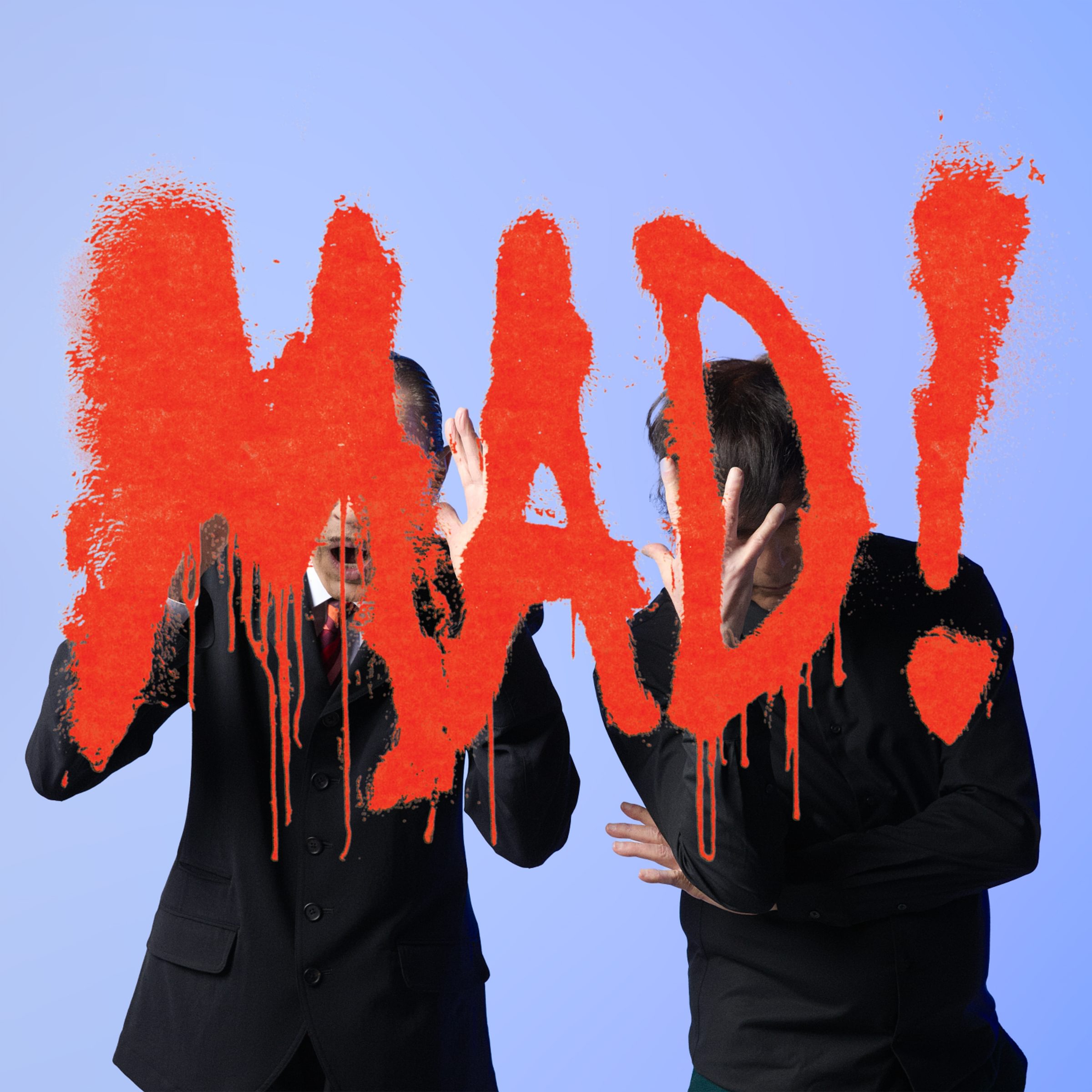 Following hot on the heels of the success of their last release, the Sparks brothers present their 28th studio album, this time peaking at number 2 in the official UK album charts, the highest position they have ever achieved in more than half a century of their existence.
Following hot on the heels of the success of their last release, the Sparks brothers present their 28th studio album, this time peaking at number 2 in the official UK album charts, the highest position they have ever achieved in more than half a century of their existence.
This release differs from 2023’s ‘The Girl is Crying in Her Latte’ by having a rawer and sharper ‘chaoticlectic’ sound, opening on the defiant trance single, ‘Do Things My Own Way’, with the pair’s next single, the stark simplicity of ‘JanSport Backpack’, following straight after. ‘Hit Me Baby’ is a political commentary on the madness of our times which echoes the tone of the last album’s ‘Nothing is as Good as They Say it is’, with a revving guitar feedback disrupting the song’s rhyme base.
‘Running Up a Tab at the Hotel for the Fab’ is a poke at the extravagant lifestyles of the rich and famous; the song itself sounds like a running treadmill of string keys building with a cinematic touch. But, as is typical on Sparks’ releases, the album slows the pace down for their next single, ‘My Devotion’; with twinkling keyboards it marries absurdity with the tragic hurt of unrequited love. Whilst the next few tracks are slightly weaker, they still retain the punchy, catchiness associated with the duo’s pop compositions and there’s also the refreshing touch of the hushed tribal ambience of ‘In Daylight’.
Inspiration comes from the most usual places as seen in ‘I-405’, a song about the busiest and most congested freeway in the United States featuring frantic strings, the traffic theme continuing in ‘A Long Red Light’. The strength of this album picks up again as it nears its end with single ‘Drowned in a Sea of Tears’ – an acoustic lullaby with Ron’s quivering keys that revisits the title track about female misery on the last album. The final two tracks offer a contrast with the comedy of ‘A Little Bit of Light Banter’ and the desperate pleadings of ‘Lord Have Mercy’: “Save us, dear Lord, from prophets of fear and doom”; both are stripped back on instrumentals because the Mael brothers combining Russell’s outstanding vocals and their songwriting skills impress all by themselves. A future number 1 is surely on the cards.
‘MAD!’ is out now on vinyl, CD and digitally.
© Ayisha Khan.
Swans – Birthing (Mute)

Their seventeenth studio album, the group releases their last ‘big sound’ record also with frontman Michael Gira as producer. It incorporates seven tracks, with opening song ‘The Healers’ breaking into a mechanical storm with Gira’s voice wailing out from within; towards the end it explodes into a screeching noise mess of instrumentation. The album’s single, ‘The Tower’, sees ominous, earthy lyrics cry out before sound crashes against sirenic guitar and at its end perhaps a glimpse of what can be expected on the band’s next releases which they describe as having a “significantly pared down form”, with a stripped down melodic song composition.
Like the rest of the album, the title track ‘Birthing’ is a contrast in loudness and quiet tranquility, with the playful innocence of child talk and gentle lap steel guitar suddenly and horrifically interrupted by a bludgeoning stomp, then back to the kaleidoscope of gentle piano dancing against the vocals before more bludgeoning ends the song. A level of stark minimalism continues in the ominous march of ‘Guardian Spirit’, Gira bellowing out the rhymes with the track then ending in cataclysmic destruction. ‘The Merge’ follows a similar pattern, stripped away to a rhythmic instrumental and then into a drone, finally transitioning into an acoustic medley showcasing Gira’s transcendental lyrics. The albums ends on ‘Rope (Away)’; a dense spectrum of sound. The release is toured later this year as the last live experience of the fuller sound capabilities of the band’s experimentation.
‘Birthing’ is out now on vinyl, CD and digitally.
© Ayisha Khan.
B-Movie – Hidden Treasures (Wanderlust)
 Their first major studio release in 10 years, the band’s new 17-track album (10 tracks on the vinyl version) whilst not consisting of any actual new material, features previously unreleased versions of songs recorded at their height in 1982 that perhaps better presents as what should have been their debut album instead of the disappointment that was ‘Forever Running’ (1985). The track list includes some of B-Movie’s well known singles, such as ‘Remembrance Day’, ‘Marilyn Dreams’ and ‘Nowhere Girl’ and songs like ‘Polar Opposites’ salvaged from the master tapes and brought back to life. Although not all tracks have the best consistency in volume, they sound at their freshest and most vibrant, with the release also including rarities such as ‘Citizen Kane’, with its bubbling keyboards, ‘Ice’, which has a Damned feel to it and the flutey keys of ‘La Lune Lunatique’, whilst other tracks are extended like ‘All Fall Down’, a song that commemorates the macabre war theme close to the band’s heart.
Their first major studio release in 10 years, the band’s new 17-track album (10 tracks on the vinyl version) whilst not consisting of any actual new material, features previously unreleased versions of songs recorded at their height in 1982 that perhaps better presents as what should have been their debut album instead of the disappointment that was ‘Forever Running’ (1985). The track list includes some of B-Movie’s well known singles, such as ‘Remembrance Day’, ‘Marilyn Dreams’ and ‘Nowhere Girl’ and songs like ‘Polar Opposites’ salvaged from the master tapes and brought back to life. Although not all tracks have the best consistency in volume, they sound at their freshest and most vibrant, with the release also including rarities such as ‘Citizen Kane’, with its bubbling keyboards, ‘Ice’, which has a Damned feel to it and the flutey keys of ‘La Lune Lunatique’, whilst other tracks are extended like ‘All Fall Down’, a song that commemorates the macabre war theme close to the band’s heart.
The CD output has a further 7 tracks of mixes, B-sides and extended 12″ versions of the band’s singles ‘Remembrance Day’ and ‘Marilyn Dreams’; the latter sees an extended instrumental ending. A remix of ‘Institution Walls’ brings out the influence of Magazine on this band in both its vocals and keyboards. Another unusual track on this part of the release is ‘Film Music’; obviously intended as a short piece of soundtrack music, it tumbles along with icy synth and graveyard piano that John Carpenter would be proud of. There also appears an extended 12″ version of the single ‘Nowhere Girl’ with its classical piano introduction, which is no doubt the best version of this song available. The CD track list ends with ‘Moles’, which initially featured on the 1981 ‘Some Bizarre’ compilation that gave the band its first exposure alongside the likes of Soft Cell, Depeche Mode and The The, albeit without them seeing as much commercial success. The track list still sounds slightly dated due to its time of production but reconnecting with lost gems of their past surely sets B-Movie up for recording forthcoming new material to the high standard seen on their last studio album, ‘Climate of Fear’.
‘Hidden Treasures’ is out now on vinyl, extended version CD and digitally.
© Ayisha Khan.
The Cure – Mixes of a Lost World (Polydor/Fiction)
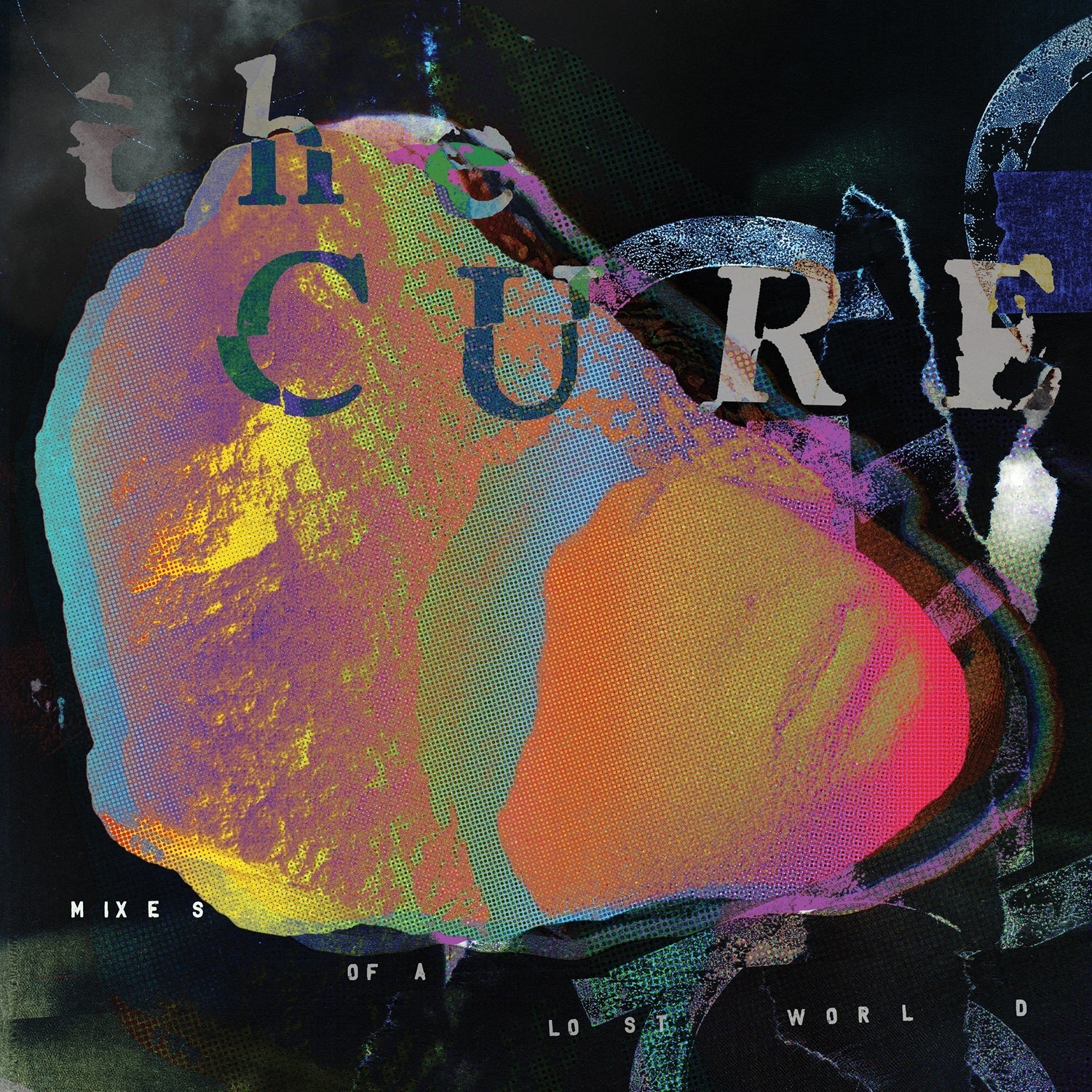 To compliment their chart topping studio album release last November, The Cure loaned out their tracks to a host of collaborative artists to provide remixes of those 8 tracks, ranging across contributions from Paul Oakenfold to Orbital and Mogwai. Whilst there are up to 24 remixes on the expanded edition of this release seemingly placing quality over quantity, there are some specific highlights inside this beautiful sleeved release coloured in titanium quartz.
To compliment their chart topping studio album release last November, The Cure loaned out their tracks to a host of collaborative artists to provide remixes of those 8 tracks, ranging across contributions from Paul Oakenfold to Orbital and Mogwai. Whilst there are up to 24 remixes on the expanded edition of this release seemingly placing quality over quantity, there are some specific highlights inside this beautiful sleeved release coloured in titanium quartz.
Whilst Oakenfold’s remix of ‘I Can Never Say Goodbye’ is a little dramatic sounding (aptly entitled ‘Cinematic’) – perhaps the most emotionally poignant song on the original release – with its thundering drums and synth heights, it does compliment the strength of feeling behind Robert Smith’s lyrics. The Orbital remix of ‘Endsong’ is a little disappointing too, it infuses with too subtle a flavour for this great band, also for the longest and most dramatic ending song to the original release.
However, the Daniel Avery remix revives the tracklist with its dirty petroleum thick, loose basslines and a later synthphonic ambience contrast. The ‘best of the rest’ interpretations on this tracklist include ‘And Nothing is Forever (Daniel Briottett and Rico Conning Remix)’, Daybreakers’ galloping techno remix of ‘Warsong’ – the best version of this track on the album – and ‘I Can Never Say Goodbye (Craven Faults rework)’; the latter standing out from anything else on this release as it’s performed solely on organs and only as an instrumental.
Whilst there are some good re-imaginings on this release, some of the tracks have cut up the original recordings too much that the essence of their meaning has been somewhat lost at the behest of creating a synthetic dance track, which is at odds with the delicacy of Smith’s organic vocals. However, the harshness of tribal drumbeats works better on ‘All I Ever Am (65daysofstatic) Remix’ towards the end of the album ahead of Mogwai’s 10-minute finale of ‘Endsong’.
‘Mixes of a Lost World’ is available now on vinyl, CD, cassette and digitally.
© Ayisha Khan.
Mark Stewart – The Fateful Symmetry (Mute)
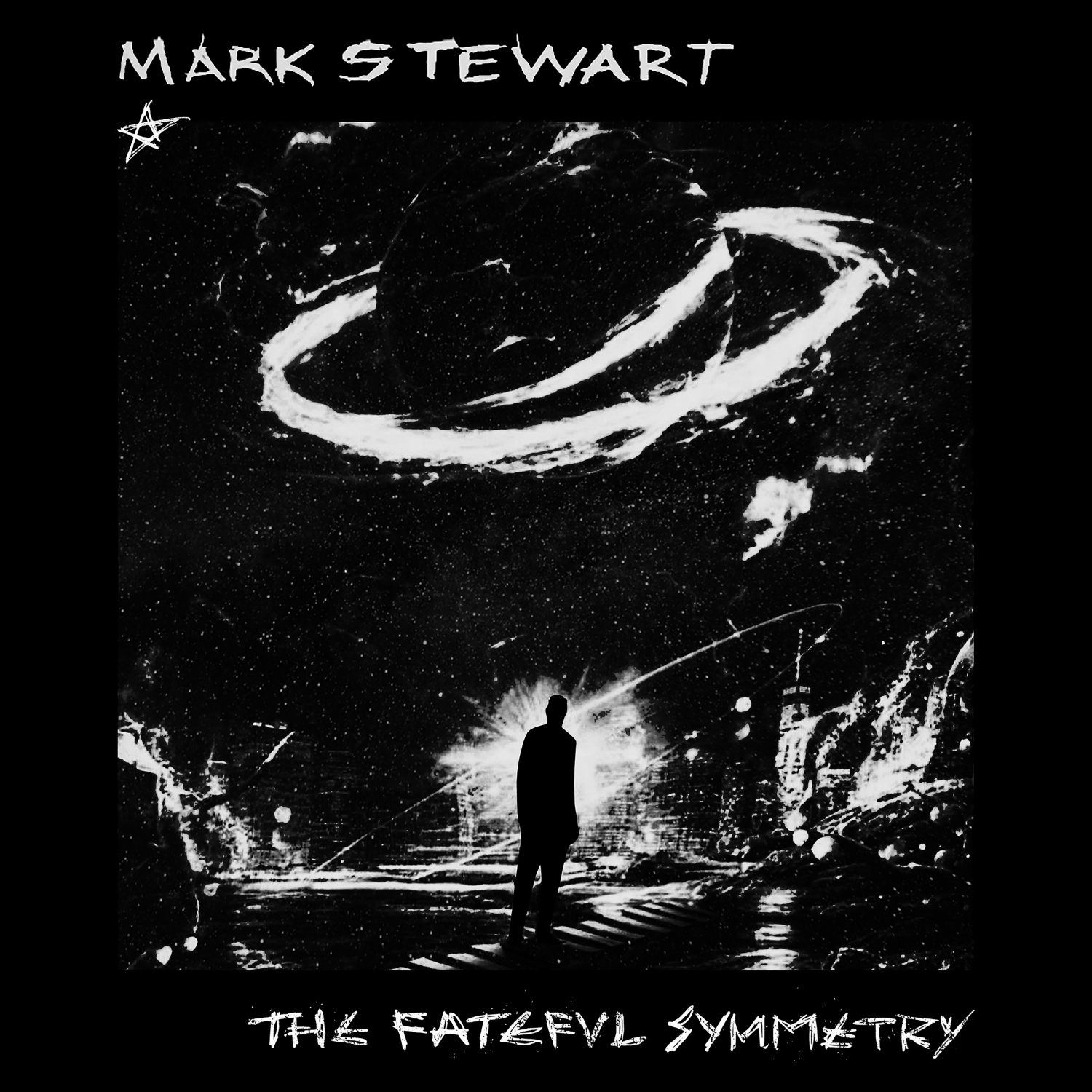 The posthumous studio album by the late Pop Group vocalist is finally unveiled after his tragic passing in 2023. It shows a side to the musician that has not been heard before; an intimate portrayal of his thoughts and emotions away from the more political music of his previous albums, but nonetheless maintaining an air of rebellion.
The posthumous studio album by the late Pop Group vocalist is finally unveiled after his tragic passing in 2023. It shows a side to the musician that has not been heard before; an intimate portrayal of his thoughts and emotions away from the more political music of his previous albums, but nonetheless maintaining an air of rebellion.
It opens on the heavy, boxiness of single, ‘Memory of You’; a dark electro song that rivals Peter Murphy’s recent solo album. The choral symphony of noir track, ‘Neon Girl’, inspired by the “singalong” chorus’ of iconic French singer George Brassens and the “cinematic staging” of the classic film ‘The 39 Steps’ and featuring the backing vocals of the Raincoats’ Gina Birch with whom they share producer Youth (who has previously produced Stewart’s solo work). Uplifting the darkess, the spoken word introduction of hope in the chaos is realised in the piano drops of pathetic fallacy ‘This is the Rain’.
Stewart’s key interest in reggae music is seen in ‘Everybody’s Got to Learn Sometime’, before returning back to the dark eletro-beats and gothic wail of ‘Twilight’s Child’; a sinister song that holds an ominous foretelling. An industrial sound enters the album with Stewart’s 21st century analysis in ‘Crypto Religion’; its futuristic, robotic vocals are reminiscent of Front Line Assembly’s sound, with the distinct sound of Harmonia also filling the next guitar driven track, ‘Blank Town’; a possible criticism of this album is that borrows too heavily from other artists at this point. The release ends on the piano waltz of ‘A Long Road’; a poignant piece that radiates the eternal light of this talented artist. RIP Mark Stewart.
‘The Fateful Symmetry’ is available now on vinyl, CD and digitally.
© Ayisha Khan.
© Ayisha Khan.
Gina Birch – Trouble (Third Man)
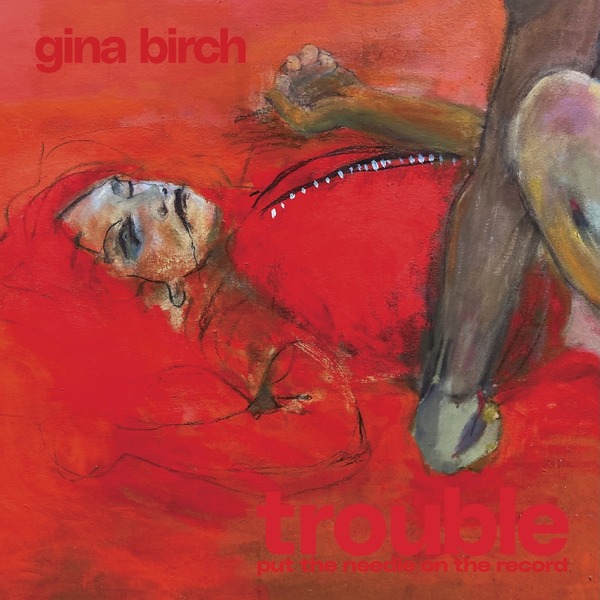 The former Raincoats’ bass player releases her second solo studio album following the success of her debut ‘I Play My Bass Loud’ in 2023. The album cover is again her own artwork but starkly contrasts the previous release’s sleeve with the image of a woman being raped, showing Birch’s unapologetic feminist shock factor is still rawly on display. The contents of this album focus again on feminist themes but also her own personal experiences.
The former Raincoats’ bass player releases her second solo studio album following the success of her debut ‘I Play My Bass Loud’ in 2023. The album cover is again her own artwork but starkly contrasts the previous release’s sleeve with the image of a woman being raped, showing Birch’s unapologetic feminist shock factor is still rawly on display. The contents of this album focus again on feminist themes but also her own personal experiences.
Birch muses at the idea of her own mortality following the knowledge that she’s getting older, with ‘I Thought I’d Live Forever’; it echoes the urban creep of her last release with choral melody. The delicate Raincoats vocal sounding ‘Happiness’ is filled with ’60s psychedelic sitar; a song about escapism based on Birch’s seeing a restaurant sign while visiting her mother and a chill pill before the album single and next single, ‘Causing Trouble’ – a punchy, drum bracketed reminder that no well behaved women ever changed history, complete with Birch and her band reading out the names of feminist women who have made their impression on smashing patriarchal rules.
Her intertwining between painting and music is achieved in the aptly named ‘Cello Song’ with its thick, robust strokes acting as a homophone for the brush strokes of the painting she’s describing. The best track on the record is her other single, ‘Doom Monger’: is apocalyptic foreboding is complimented by a simple nihilistic reggae trudge but still infuses with a scent of hope despite the futile situation that faces the planet. The electronic track ‘Nothing Will Ever Change That’ has an infectious groove whilst ‘Sleep’ is a relatable girly song about obsessive love demonstrating Birch’s reliance on vocals rather than overbearing instrumentals, also seen in final track ‘Train Platform’; a spoken word piece that has an ominous predatory tone to it.
‘Trouble’ is available now on coloured vinyl, vinyl, CD and digitally.
© Ayisha Khan.
© Ayisha Khan.
© Ayisha Khan.
Gary Numan – A Perfect Circle: Live (BMG)
 Commemorating the musician’s triumphant return to Wembley Arena for the first time since 1981, this live release contains the entire setlist from the London date of his 2022 ‘Intruder’ album tour, including live footage of the entire show released as a DVD film with the CD format. Featuring a massive 24-track setlist, it feels more like a span of his career summarising his greatest outputs as “a perfect circle”, with special guest performances throughout. The album is formatted on a beautiful black and white photographed 3LP aside to the CD/DVD version.
Commemorating the musician’s triumphant return to Wembley Arena for the first time since 1981, this live release contains the entire setlist from the London date of his 2022 ‘Intruder’ album tour, including live footage of the entire show released as a DVD film with the CD format. Featuring a massive 24-track setlist, it feels more like a span of his career summarising his greatest outputs as “a perfect circle”, with special guest performances throughout. The album is formatted on a beautiful black and white photographed 3LP aside to the CD/DVD version.
Gary Numan’s set opens on the title track from his last studio album, ‘Intruder’, with its humming synths against tribal clatter. It jumps between discography periods from 2006’s ‘Jagged’ to his early Tubeway Army years with the synthy squelch of ‘Metal’ from 1979’s ‘The Pleasure Principle’, an album that he recently toured for its 45th anniversary. Numan’s first guest Gazelle Twin then arrives onstage for Middle Eastern backing vocals in ‘Intruder’s ‘The Gift’, portrayed emotively in the DVD footage.
The precision of the band’s rhythm section is brought out even further by the louder bass and drums in the released version as heard in ‘Films’ and ‘M.E’ (the latter with Tubeway Army bandmates Rrussell Bell on guitar and keyboardist Chris Payne on viola); the diversity of the track-list also includes the instrumental ‘Resurrection’ alongside all the timeless favourites and No. 1s such as ‘Down in the Park’, ‘Cars’ and ‘Are ‘Friends’ Electric?’. Fitting alongside in equal splendour are more of his newer songs, the highlight amongst being ‘Is This World Not Enough’ and the classical piano keyed autobiographical ‘A Black Sun’; showcasing some of the most forward thinking songwriting of any artist of his time. Numan was joined on stage with these for backing vocals by his own daughters Raven and Persia, showing the Numan legacy is very much family affair. Numan extended family member, Tim Muddiman, also accompanied the band onstage on guitar for ‘Me, I Disconnect From You’.
This musician is constantly releasing between his studio albums and this new live release – a long time in the making – like all his non-studio material, as a whole package presents a holistic experience of the listener; a three-dimensional documentation as one of the most successful and ingenuitive artists of a generation. The only possible criticism is that it sounds too perfect, with only Numan’s talk between songs and the crowd noise giving away that this is actually a live experience. It’s really that perfect.
‘A Perfect Circle: Live’ is available now on vinyl, CD/DVD and digitally.
© Ayisha Khan.
A Certain Ratio – Live in America (Mute)
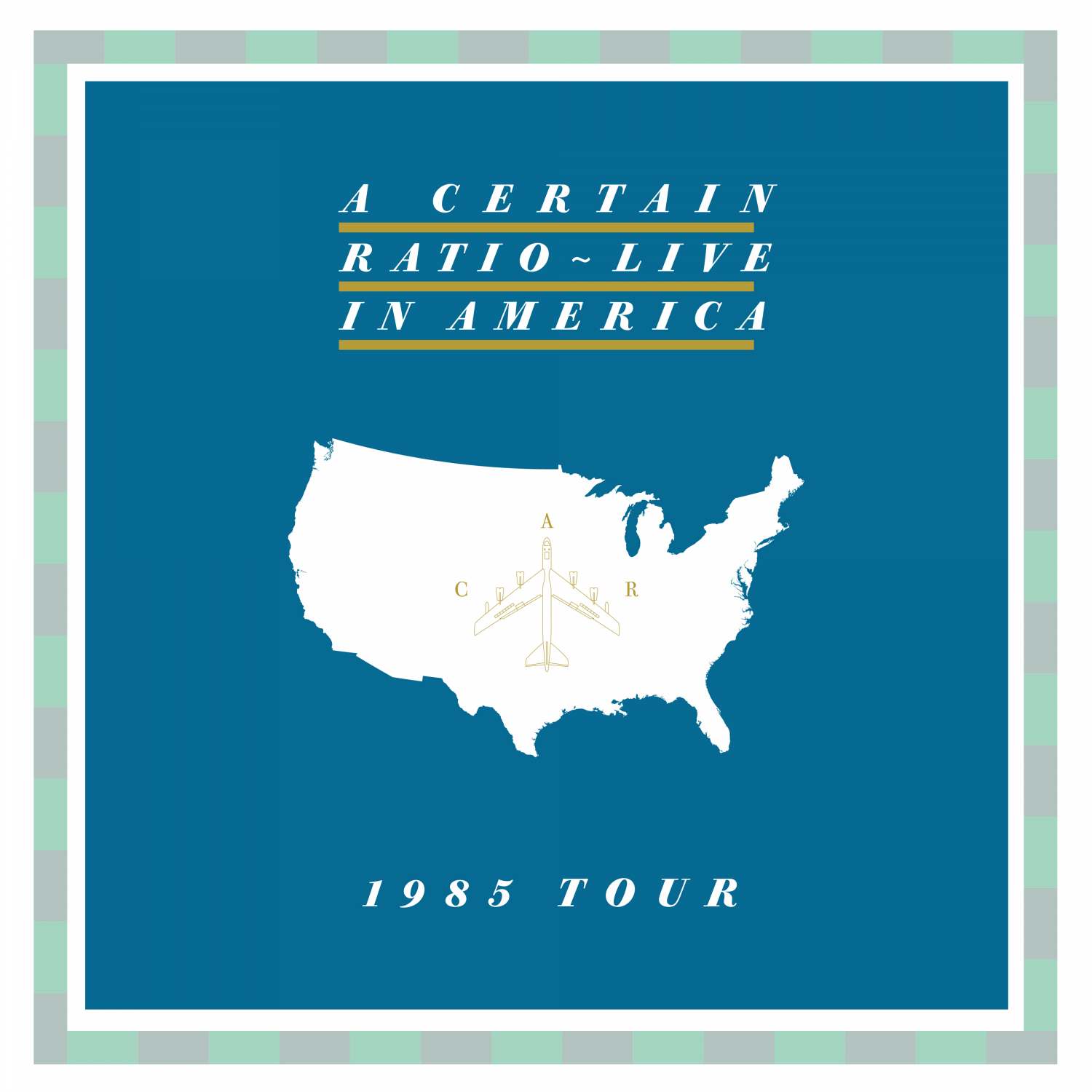 This remastering of the 1985 live release has not been available since its original release on CD and LP in 1987, offering an alternative and rare insight into an intermediary period in the band’s discography and as a refreshing release following their multiple recent studio outputs and remix albums. It also presents a period of time in which ACR had released several non-album singles, a creative span pre-dating their late ’80s/early ’90s EPs ‘Greetings Four’ and ‘Four to the Floor’ EPs and preceding their explosive dance albums.
This remastering of the 1985 live release has not been available since its original release on CD and LP in 1987, offering an alternative and rare insight into an intermediary period in the band’s discography and as a refreshing release following their multiple recent studio outputs and remix albums. It also presents a period of time in which ACR had released several non-album singles, a creative span pre-dating their late ’80s/early ’90s EPs ‘Greetings Four’ and ‘Four to the Floor’ EPs and preceding their explosive dance albums.
Opening song ‘Sounds Like Something Dirty’ differs from its 12″ recorded version released the same year as the US tour, in which the band toured with Factory bandmates New Order, and features an extended ethereal intro. Following tracks ‘The Fox’, ‘Flight’ and ‘Wild Party’ are based on their 1985 12″ single versions, but are brought to life with more bite in this live release as well as ‘And Then Again’ which has a much deeper tone to it. Other tracks derive from ACR’s last studio album at this point, ‘I’d Love to See You Again’ (1982), with ‘Touch’ and ‘Knife Slits Water’, but are played at twice their speed as on the album and 7″ single versions respectively.
Single ‘Life’s a Scream’, having been released the previous year to the tour, is a rare ACR set list song even to this day while 1980 non-album single ‘Shack Up’ sees the adding of live female backing vocals more typical of its later versions.
‘Live in America’ is available now on vinyl, CD, cassette (sold out) and digitally.
© Ayisha Khan.
Suede – Antidepressants (BMG)
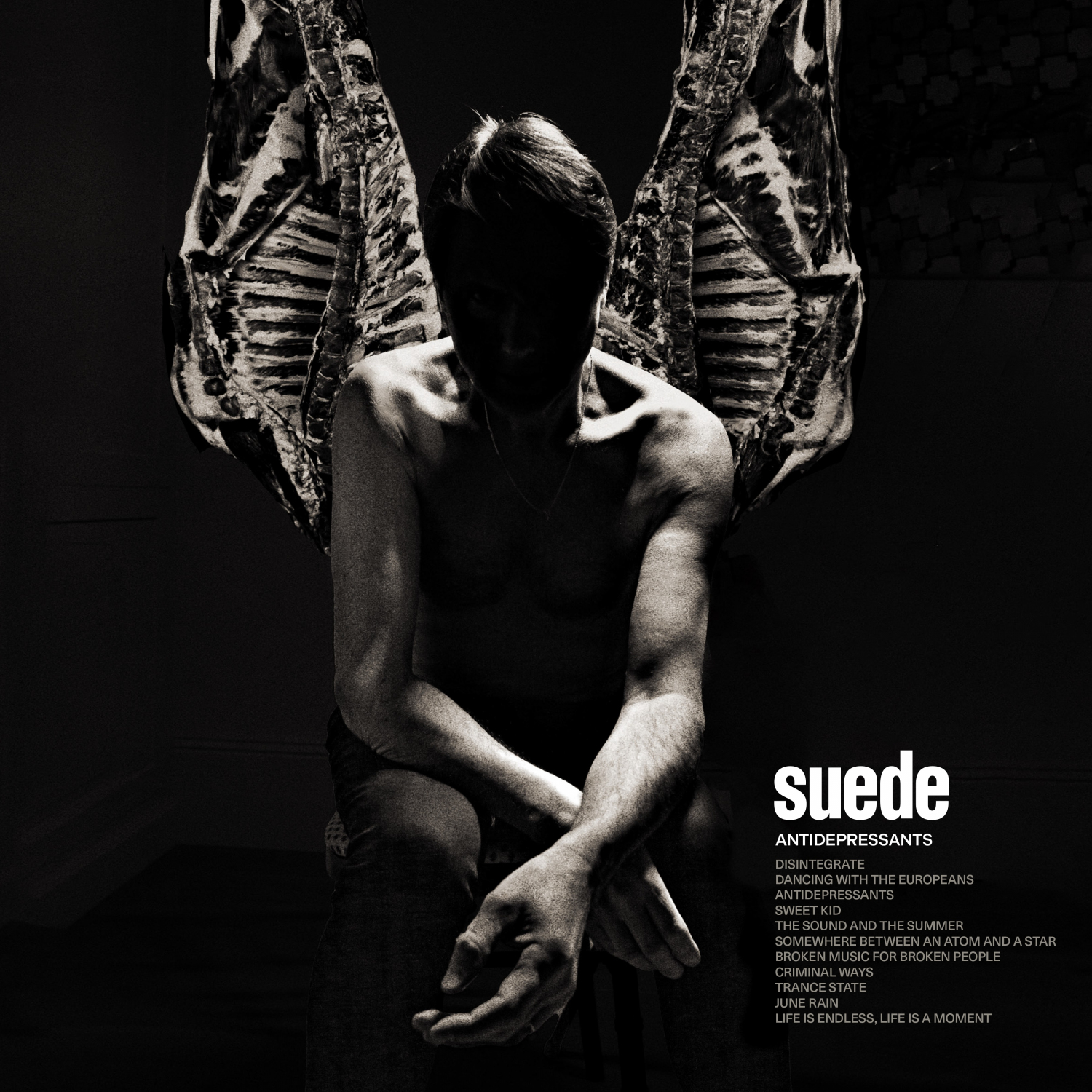 Following on from the release of last studio album ‘Autofiction’, Suede continue to captivate their fans with catchy, ethereal songs. Whilst it’s described by the band as the post-punk follow-up to their last punk album, it retains the hit of punk rock with chiming, jangly guitars recorded by founding members Brett Anderson (vocals) and Matt Osman (bass) along with long serving member Simon Gilbert (drums).
Following on from the release of last studio album ‘Autofiction’, Suede continue to captivate their fans with catchy, ethereal songs. Whilst it’s described by the band as the post-punk follow-up to their last punk album, it retains the hit of punk rock with chiming, jangly guitars recorded by founding members Brett Anderson (vocals) and Matt Osman (bass) along with long serving member Simon Gilbert (drums).
First track is also the first single, ‘Disintegrate’, which has an elasticity in smacking, hard hitting percussion diced up by the invite of the dancey choral melody and even some synth keyboards. It’s hotly pursued by the band’s third single ‘Dancing with the Europeans’, featuring summery guitars – the album’s ‘feel good’ outdoor dance anthem. Second single, ‘Antidepressants’ with its Banshees-like, creeping post-punk guitar is an about experiencing the delirium of medication highs. Further confused Banshees guitar features in following track ‘Sound and the Summer’; ‘Somewhere Between and Atom and a Star’ is am ambient rock hallucination: it drifts the listener away to the cosmic escapism tickled by psychedelic guitars.
Perhaps at the release’s heart is ‘Broken Music for Broken People’, conjuring the concept of the album, saving the world from what Anderson describes as “the tensions of modern life, the paranoia, the anxiety, the neurosis…in a disconnected world.” Osman brings post-punk funk into the mix with the reverberating ‘Criminal Ways’ and second single ‘Trance State’; the latter is perhaps the best track on the entire release; its stripped down bassline underpins the kaleidoscope of guitars and ending on jibing keys.
The album ends on the rocking slumber of bittersweet guitars in ‘Life is Endless, Life is a Moment’, a song about getting older but feeling youthful at the same time which goes to illustrate the point that, whilst Suede have a particular euphoric sound structure to their music, their diamond retention of upbeat punch and multi-faceted approach to songwriting makes this another great record against the pressures of the modern day on artists who have been spanning such a long duration in their career to stay this creative.
‘Antidepressants’ is available now on vinyl, CD and digitally.
© Ayisha Khan.
Chameleons – Arctic Moon (Metropolis)
 After a 24 year-long gap since their last studio album, ‘Why Call it Anything’, the band, headed by founding members Vox (vocals, bass) and Reg Smithies (guitar) along with Stephen Rice (guitar), Danny Ashberry (keyboards), and Todd Demma (drums), have finally put out their long awaited full studio release following their EP last year, ‘Where Are You?’. One of those tracks, the aforementioned title track of the EP, has been carried re-recorded onto the full album. In this opening song there is a retention of the distinct Chameleons feel, including cooler synth passages amongst the reeling guitar and pastel post-punk strokes at the end of the track.
After a 24 year-long gap since their last studio album, ‘Why Call it Anything’, the band, headed by founding members Vox (vocals, bass) and Reg Smithies (guitar) along with Stephen Rice (guitar), Danny Ashberry (keyboards), and Todd Demma (drums), have finally put out their long awaited full studio release following their EP last year, ‘Where Are You?’. One of those tracks, the aforementioned title track of the EP, has been carried re-recorded onto the full album. In this opening song there is a retention of the distinct Chameleons feel, including cooler synth passages amongst the reeling guitar and pastel post-punk strokes at the end of the track.
Almost twinned with the above is the euphoric, jangly folk drive of ‘Lady Strange’; a summery love song with a dark hum at its close. The same folk swing – yet still so typically post-punk – is also a sound that continues in the next acoustic track, ‘Feels Like the End of the World’, featuring real strings fused with electric guitar that carves the song into an apocalyptic waltz, even with some Sparks falsetto influenced backing vocals and spoken word, before a cinematic finish to what is possibly an unnecessarily long track.
There’s a sad acoustic ballad of unrequited love in the Bowiesque ‘Free Me’, also lacking verses in its overlong duration. However, length works in the favour of the boozy glam guitar of the soulful ‘David Bowie Takes My Hand’, which is studded with strange synth keys and soaked in psychedelics, ending in more strings. The final track comprises the album single, ‘Saviours Are a Dangerous Thing’, which amongst calmly combing along their traditional sound, invites the political absurdity of today’s despots into the mix. This new album, perhaps short of songs that are also at times over duration, has at its core strength the branding of that unique and so influential Chameleons sound as well as strong but gentle melodies filled with the band’s distinct guitar sound and rhythms.
‘Arctic Moon’ is available now on vinyl, CD and digitally.
© Ayisha Khan.
Immersion – WTF?? (Swim)

Back with another album that they’ve already been touring live, husband and wife duo Colin Newman (Wire) and Malka Spigel (Minimal Compact) have produced more electronic tracks for the apocalyptic state of the modern day, hence the title of the release.
First track ‘Defiance’ is a droney drum and bass dreamscape; ‘Use it Don’t Lose It’, one of the main tracks on the album, it struts with lyrical instruction advice. A similar spoken word track is ‘Timeline’, with a constant drum kick throughout and Newman’s philosophical musings, “What’s the point of art if you don’t actually say something” clashing with “Talking over music isn’t necessarily the best way to make a point”.
’How to Be’ sees moog organ combined with Malka’s softer vocals about staying constant in times of change, also alternating with boozy guitar. There’s more organ in the existential bop of single ‘Push the Rock’, which positively talks about using art to challenge negativity. Preachy punks who still want to do their bit to change the world.
‘WTF??’ is available now on vinyl, CD and digitally.
The Zombies – Odessey and Oracle (Beechwood Park)
After regaining control over their master tapes, the band have finally remastered their most critically acclaimed album and one of Rolling Stone magazine’s best albums of all time in Mono, the way it was originally intended back in 1968 when the release of the album struggled with label politics and commercial recognition. This is also the first time this release has been formatted on vinyl since its original issue.
Recorded primarily at London’s legendary Abbey Road Studios in 1967, ‘Odessey and Oracle’ was self-produced in Mono on a shoestring budget by primary songwriters Rod Argent (keyboards, vocals) and Chris White (bass, vocals). Under last-minute pressure from their record label, the album was hastily remixed in the newly emerging Stereo format, which sacrificed key elements from the Mono recording, most notably the beloved horn parts, now restored in ‘This Will Be Our Year’.
Also noticeable is the lead vocals (whether sung by Rod Argent or Colin Blunstone), which receive more clarity such as in ‘Care of Cell 44’ and a soft, less crowded, harsh sound in the tracks that most benefit this – ‘A Rose for Emily’, ‘Beechwood Park’ and ‘Brief Candles’ – as well as a honing in on the lead vocals against the backing choruses in ‘Hung Up on A Dream’ and ‘Changes’, the latter produced without an echo as it singularises the sound.
But of all the track list, ‘Time of the Season’, the band’s underrated UK single that was only a hit in America, perhaps benefits the most from its Mono output with its famous percussionary beats less audibly disjointed as in the Stereo version. This is by far a better version of the original album and, had it been correctly released back in the day, would have surely meant it would have received more of the recognition it deserved.
‘Odessey and Oracle’ is available now on vinyl, limited edition coloured vinyl, CD and digitally.
© Ayisha Khan.
Eater – Duplication (Cleopatra)
 The punk band’s first studio release in half a century is a cover album by their sole remaining member, Andy Blade (along with his backing band JoJo and the Teeth who help form the current lineup of Eater), containing some of the most well-known punk songs ever written, the virginals of 1976-77 that sparked the inspiration of a new counterculture. By no means an easy feat.
The punk band’s first studio release in half a century is a cover album by their sole remaining member, Andy Blade (along with his backing band JoJo and the Teeth who help form the current lineup of Eater), containing some of the most well-known punk songs ever written, the virginals of 1976-77 that sparked the inspiration of a new counterculture. By no means an easy feat.
The first track is Buzzcocks’ ‘Breakdown’, taken from the band’s first release ‘Spiral Scratch’, an EP now considered a legacy record. Unfortunately, the band’s cover version is churned out rather meaninglessly and disrespectfully of the lyrics in a manner that can be considered sacrilege considering how crucial this song was in shaping a whole generation of punk bands and independent music.
Whilst other tracks are more straightforward in their form they also don’t do much as covers other than having a distinct Eater tinge to them such as ‘Beat on the Brat’ by the Ramones from their eponymous 1976 debut album. Perhaps one of the few songs that does work is unsurprisingly Eater’s own 1977 debut single ‘Outside View’, which is re-recorded for this album with rigorous guitars tickled by a prominent bass riff.
The Saints’ ‘I’m Stranded’, the Australian band’s 1976 debut single, is spoiled by JoJo and The Teeth’s lead singer JoJo on backing vocals, who has always been a curiosity as part of Eater which already has a singer considering she’s a strong female vocalist on backing hovering in the background and being made rather obsolete.
Another track that does work is ‘God Save the Queen’, the Pistols’ second single; it retains the rhythmic sway of the original as does the growling guitars and vocals in ‘The Heartbreakers’ ‘Chinese Rocks’. However, the Damned’s 1977 ‘New Rose’ is a disaster in places and 1976 single ‘Another Girl, Another Planet’ by The Only Ones is spoiled by mangled production and again too vocally convoluted for a song originally sung by a delicate vocal. This is a poor release for a band that is still awaiting the release of much needed new material which would have been far more preferential at this point some 50 years later.
‘Duplication’ is available now on coloured vinyl, CD and digitally.
© Ayisha Khan.
Maps – Welcome to the Tudor Gate (Mute)
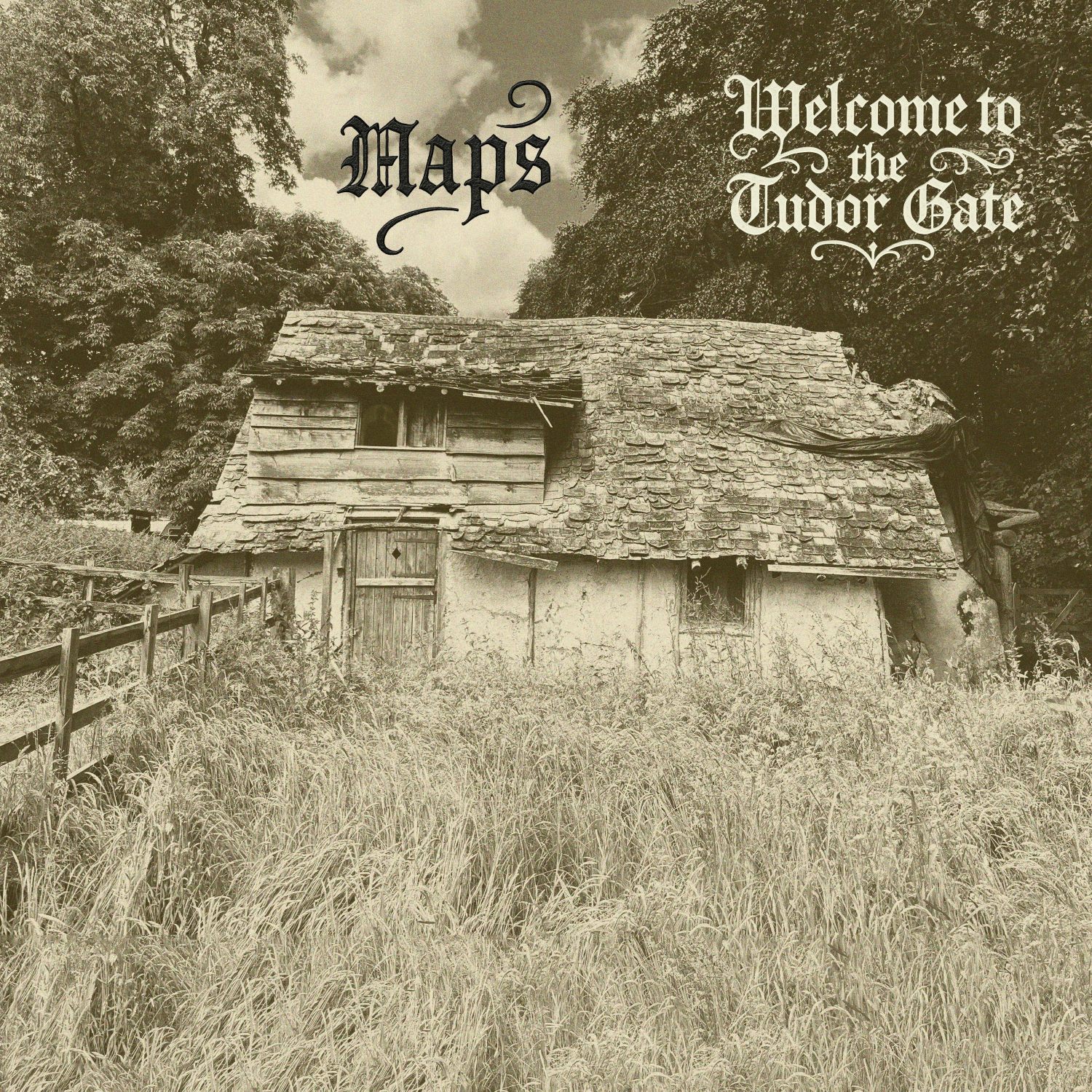 This film-like soundtrack was originally recorded in 2014 but lost; it consists of eight chapters of music based on James Chapman’s inspiration from achalf-remembered film and delves into forests, magic and ominous witchcraft across its 40-minute duration. It flows end-to-end as one-piece, charting the journey of the protagonist, available as both segmented and whole versions.
This film-like soundtrack was originally recorded in 2014 but lost; it consists of eight chapters of music based on James Chapman’s inspiration from achalf-remembered film and delves into forests, magic and ominous witchcraft across its 40-minute duration. It flows end-to-end as one-piece, charting the journey of the protagonist, available as both segmented and whole versions.
‘Chapter One’ for which the artist created an accompanying video, is full of clattering tribal drumbeats and hits of Ultravox astrological synth inputs that are reminiscent of ‘Mr. X’ which feed a cosmic energy; ‘Chapter Two’ continues with the chiming pendulum of a percussive treadmill and computeronic ‘Space Invaders’ machine gun artillery beats.
‘Chapter Three’ sees a transient, hymnic humming synth with white noise rumbles that move into ‘Chapter Four’ as the album’s mid-section interlude. ‘Chapter Five’ is the most interesting piece of the set: it introduces a funkier rhythm with a sequence of bell ringing simmering down to a bassline amongst rising Cathedral organs. ‘Chapter Seven’, which receives its introduction in the introductory keys of ‘Chapter Six’, is a fantastical revelation as the protagonist’s journey nears its end and contains the looping rhythm so associated with Maps’ work. The release ends on ‘Chapter Eight’ which cools into an oceanic waterfall of rain and a pulsating fade.
‘Welcome to the Tudor Gate’ is available now digitally.
© Ayisha Khan.
Gary Numan – 1,000: Live at the Electric Ballroom (BMG)
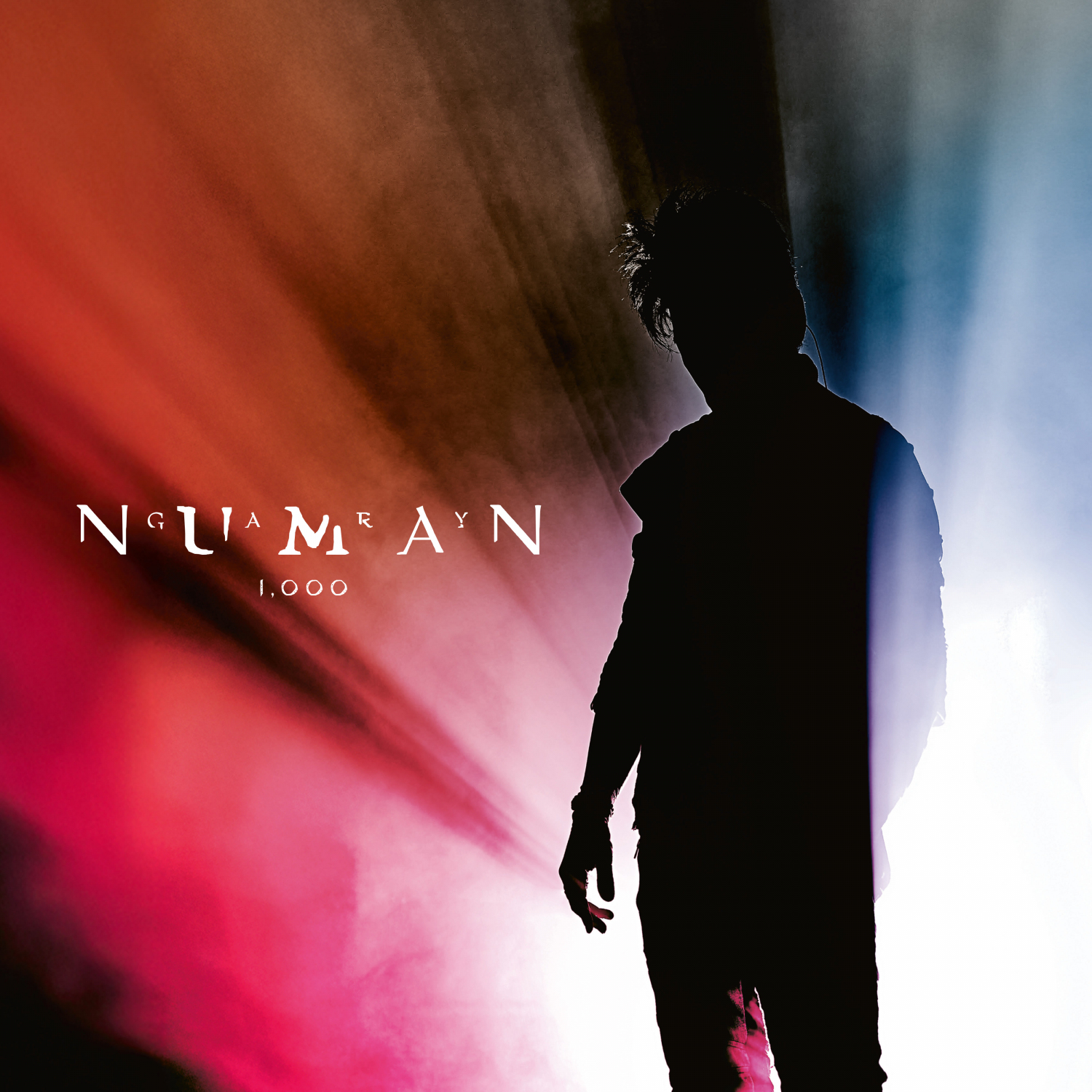 To celebrate his 1,000th show, Numan releases his second live record of the year following on from his OVO Wembley Arena ‘A Perfect Circle’ compilation. The show was recorded as part of a triple residency at the Electric Ballroom in London. The fact this is his 1,000th live performance and not higher demonstrates the reputation yet intimacy of this artist, who has achieved a level of fame that has also not outdone his humble roots.
To celebrate his 1,000th show, Numan releases his second live record of the year following on from his OVO Wembley Arena ‘A Perfect Circle’ compilation. The show was recorded as part of a triple residency at the Electric Ballroom in London. The fact this is his 1,000th live performance and not higher demonstrates the reputation yet intimacy of this artist, who has achieved a level of fame that has also not outdone his humble roots.
Opening on the sandy twitches of ‘Resurrection’, the track list is in set list order, early on showcasing the fizzing synths of ‘Down in the Park’ and then ‘Haunted’; the latter one of the strongest songs on the release with its static creep and choral synths. Numan candidly declares during the show that he “fucked up” ‘Metal’, one of his best songs, when he didn’t sing one of the verses in full, also admitting later to his poor public speaking due to autism which often overwhelms him in front of a live audience.
Punk rockabilly song ‘That’s Too Bad’ changes the speed of the set and then immediately after comes ‘Exile’, which slows it down with warm acoustics and added spikes of synth creating a mysterious trance for a whole 6 minutes. The slow ascent of ‘Splinter’ then follows.
Yet another fantastic track comes in the form of a setlist rarity, ‘In a Dark Place’, from 2006’s ‘Jagged’: opening on a swinging pendulum with creeping piano and ghostly synth. Numan’s daughters also guested in person at the live show on backing vocals and feature in ‘Is this World Not Enough’ and ‘My Name is Ruin’. An artist like this is still so far ahead of the game, proactively issuing new and well presented live and studio releases as well as constantly touring and sharing this experience with his fans through releases such as this.
‘1,000: Live at the Electric Ballroom’ is out now on vinyl, CD and digitally.
© Ayisha Khan.